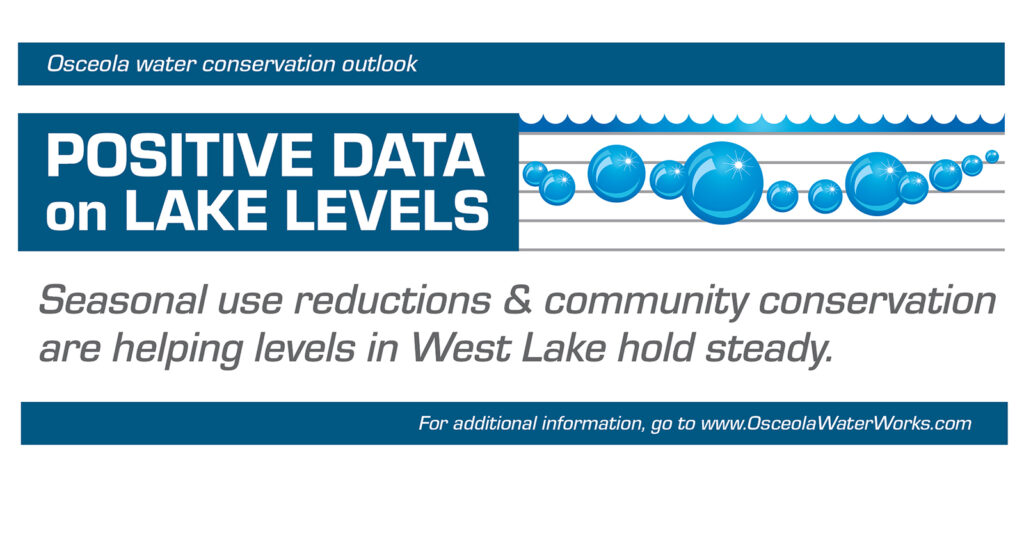Even with the recent severe cold snap and resulting ice cap on West Lake, engineers are calculating West Lake’s water level through both physical- and data-driven methods. Both efforts show lake level reductions are slowing. While that can be attributed to seasonal reduction of water use, officials are looking back to years past and the data shows, while the overall lake levels are more than 2-feet below where it was last year at this time, the overall rate of water loss has stabilized at elevation ~1065.26 ft. above MSL. (West Lake level reported on 2/2/2024)
“We understand conservation efforts from a single person or sole household may feel insignificant, but we’re now seeing, when our community works together, we do see results,” said Brandon Patterson, Osceola Water Works Superintendent.
Day-to-day raw water pumpage rates over the first weeks of the new year also show a significant reduction. On January 3rd, 2024 raw water pumpage was 1,138,000 gallons. Shortly after that, SIRWA ceased their draws for both their East and West quadrants lowering the necessary daily withdrawal from West Lake. Overall, January average water pumpage dropped to 851,000 gallons per day.
Measuring Outflow:
The water works team, and their engineers are also seeing positive signs across other data outputs as well. According to Donny McCuddin, Osceola’s Wastewater Treatment Plant Manager, the facility’s daily treated water pumpage totals have taken a significant drop. To take a single-day’s comparison: January 13th of 2021 saw more than 800,000 gallons of finished water sent on to White Breast Creek. That same single-day time period on January 13th of this year saw 507,000 gallons filtered, a reduction of treated wastewater of more than 36.6%.
“From our standpoint, the data suggests there’s less coming down to the plant, meaning our community and our businesses are doing their part to conserve,” said Ty Wheeler, Osceola’s City Administrator.
Wheeler was quick to point out that while conservation has a lot to do with the wastewater treatment slowing expulsion rates, there is likely some exfiltration taking place. “Exfiltration” refers to a loss of water from a wastewater treatment infrastructure as the result of absorption into the surrounding soil.
The Water Works Board and City officials continue to communicate with neighboring communities for possibilities of sharing raw water resources.
City Officials and the IDNR are moving forward with discussions on the effluent water solution, evaluating the reclamation of treated waste water for use in West Lake. As the State and INDR officials determine the best route for implementing the innovative solution, local officials continue to push for expedited decisions and urgency in all matters of water for the area.
